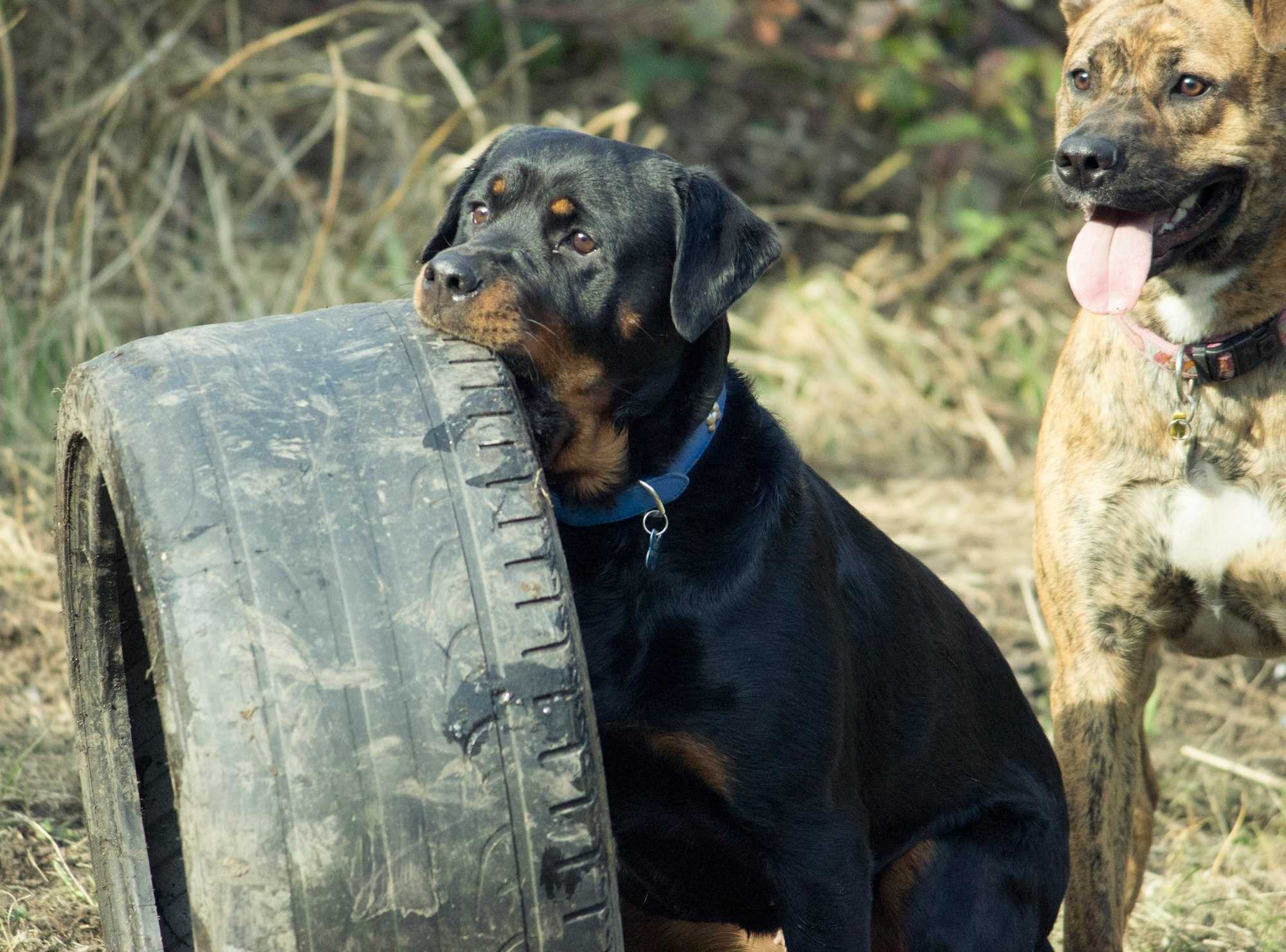What is a Rottweiler's Bite Force?

If you have a Rottweiler or are considering adopting one, it is crucial to understand just how powerful this member of your household is. Not understanding how strong a Rottweiler's bite is can catch you unaware and have serious consequences.
A Rottweiler's bite force is 328 PSI, which is over double the strength of a human being. Although this is just slightly more than the average domestic dog, Rottweilers account for 10.4% of dog bite fatalities in the US. This bite force is more than enough to break through human bone.
I hope you read through this article and gain an appreciation for these beautiful dogs. You don't need to be fearful of them, particularly a well-trained Rottweiler, but you do need to understand their full capabilities.
A Rottweiler's Bite Force: What to Know
While Rottweilers are not responsible for the most dog bites and bite-related fatalities in the US (the Pit bull being first), they still account for a large number. It is therefore important to understand what strength lies behind your loveable Rottie's grin so that you take their training seriously.
A study between 2005-2017 (link here) showed Rottweiler's were responsible for 10.4% of dog bite fatalities, ranking them the 2nd-most fatal bite.
These statistics do not necessarily indicate that the Rottweiler is an aggressive breed. In fact, they can be one of the most loving breeds if trained correctly. However, the fact that they have such a powerful bite means that they can cause serious damage if they do end up biting someone.
A Rottweiler has a bite force of 328 PSI (pounds per square-inch). This strong bite is mostly due to their large skull, jaw and teeth, as well as their fearlessly protective nature. If your Rottie thinks you are in trouble, they will not hold back when it comes to 'neutralising the threat' (unless they have been trained appropriately).
That being said, the bite force of a Rottweiler will vary depending on the size and strength of each Rottie, so this is just a general guide for a healthy adult.
How Does this Compare?
If you're wondering how this compares, the force in a Rottweiler's bite is only slightly higher than that of the average domestic dogs. It is also very similar to a Siberian Husky, which has a bite force of 320 PSI.
There are dogs with much stronger bites, such as the Turkish Kangal, which has a bite force of 743 PSI, the Cane Corso (650 PSI) or a Mastiff (556 PSI). A more relatable comparison, however, is that of the average adult human, who bites with around 120 PSI of force.
The relevance of this bite force comes down to what damage a Rottie can do when they decide to bite someone. It can take as little as 100 PSI to bite through bones in the adult human's arm, so something with a jaw as big as a Rottweiler, with a bite force of 328 PSI, could easily snap through a limb. This certainly gives some context to why their bite can be fatal.
The Bite Sleeve: Measuring Bite Force
The bite force of different dog breeds was measurement and recorded by Dr Brady Barr in 2008. This was done using a device known as a bite sleeve, which is worn on someone's arm as the dog bites down. The force between the jaws is then recorded based on the compression of the device. On average, domestic dogs demonstrated a bite force of 320 PSI.
Does a Pitbull or Rottweiler Bite Harder?
The Pitbull breed has a wider range when it comes to bite force, falling between 200 and 300 PSI. On average, Pitbulls will bite with around 235 PSI. This is significantly less than the Rottweiler, therefore a Rottweiler will bite much harder than a Pitbull.
This is likely due to the size differences between the two breeds. Although both breeds are strong and muscular, a Rottweiler is a large dog breed, where a Pitbull is a small/medium dog breed.
It is interesting that, although they have a stronger bite, Rottweilers have a lower fatality rate than Pitbulls. This shows that bite force does not directly relate to bite fatalities.

